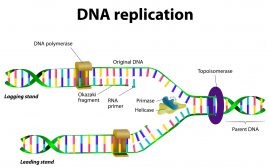Indicators and reagents
substances used for the detection, identification, analysis, etc. Of chemical, biological, or pathologic processes or conditions. Indicators are substances that change in physical appearance, e.g., colour, at or approaching the endpoint of a chemical titration, e.g., on the passage between acidity and alkalinity. Reagents are substances used for the detection or determination of another substance by chemical or microscopical means, especially analysis. Types of reagents are precipitants, solvents, oxidisers, reducers, fluxes, and colourimetric reagents.
Dictionary > Indicators and reagents
You will also like...

The Evolutionary Development of Multicellular Organisms
Multicellular organisms evolved. The first ones were likely in the form of sponges. Multicellularity led to the evolutio..

Human Reproduction
Humans are capable of only one mode of reproduction, i.e. sexual reproduction. Haploid sex cells (gametes) are produced ..

Abiotic and Biotic Factors
This tutorial deals with the abiotic factors of the freshwater environment that determine what sort of life would be sui..

Psychiatry & Mental Disorders
Different mental disorders are described here. Read this tutorial to get an overview of schizophrenia, affective mood di..

DNA Structure & DNA Replication
DNA is a double helix structure comprised of nucleotides. A nucleotide, in turn, is made up of phosphate molecule, deoxy..

Plant Water Regulation
Plants need to regulate water in order to stay upright and structurally stable. Find out the different evolutionary adap..

